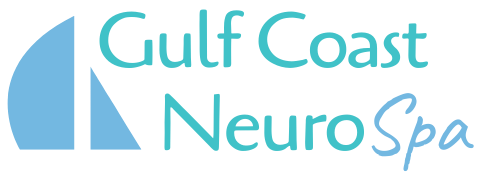Comparing TMS with Traditional Depression Treatments: What You Need to Know
Depression is a complex and often debilitating mental health condition that affects millions of people each year. While traditional treatments such as medication and therapy have long been the mainstay of depression management, newer options like Transcranial Magnetic Stimulation (TMS) are providing hope to individuals who haven’t responded to conventional methods. In this blog, we’ll explore the key differences between TMS and traditional depression treatments, focusing on how these options impact patients along the Mississippi Gulf Coast and in Pensacola, FL.
The Basics of Traditional Depression Treatments
Traditional approaches to treating depression generally include:
Medication: Antidepressants are the most common pharmacological treatment for depression. These medications, such as selective serotonin reuptake inhibitors (SSRIs) or serotonin-norepinephrine reuptake inhibitors (SNRIs), work to balance brain chemicals associated with mood.
Psychotherapy: Talk therapy, such as cognitive-behavioral therapy (CBT), helps individuals identify and change negative thought patterns and behaviors.
Lifestyle Changes: Exercise, diet, and sleep hygiene are often recommended as complementary strategies to improve mood and overall mental health.
These treatments have proven effective for many individuals, but they’re not without limitations.
Challenges of Traditional Depression Treatments
While medications and therapy help many people, they’re not a one-size-fits-all solution. Some common challenges include:
Delayed Onset: Antidepressants can take weeks or even months to show noticeable effects.
Side Effects: Medications may cause unwanted side effects like weight gain, fatigue, or sexual dysfunction.
Resistance: Up to one-third of patients with depression experience treatment-resistant depression (TRD), where traditional treatments fail to bring relief.
Time Commitment: Psychotherapy requires consistent effort over weeks or months, which can be difficult for some individuals.
What Is Transcranial Magnetic Stimulation (TMS)?
TMS is a non-invasive, FDA-approved treatment for depression that uses magnetic fields to stimulate nerve cells in the brain. The therapy is particularly effective for individuals with treatment-resistant depression.
How It Works:
-
A TMS device delivers magnetic pulses to specific areas of the brain involved in mood regulation, such as the prefrontal cortex.
-
The treatment typically involves multiple sessions, each lasting 20-40 minutes, over the course of several weeks.
-
Unlike medications, TMS targets brain activity directly without systemic side effects.
Advantages of TMS Over Traditional Treatments
Non-Invasive: TMS doesn’t require surgery, anesthesia, or systemic medication, making it a less intimidating option for many patients.
Minimal Side Effects: The most common side effects of TMS are mild scalp discomfort or headaches, which are typically short-lived.
Quick Recovery: Patients can resume normal activities immediately after each session.
Effectiveness for TRD: Studies show that TMS significantly improves symptoms in individuals who haven’t responded to medications or therapy.
Comparing Effectiveness
-
Medications: While antidepressants work for many, their effectiveness can diminish over time, and finding the right drug often requires trial and error.
-
Therapy: Psychotherapy offers lasting benefits but may not address severe or biological aspects of depression on its own.
-
TMS: For treatment-resistant depression, TMS offers a targeted approach that addresses underlying neurological issues, with many patients experiencing symptom relief within weeks.
Availability on the Mississippi Gulf Coast and in Pensacola, FL
Residents of the Mississippi Gulf Coast and Pensacola, FL, have access to high-quality TMS services through specialized providers like Gulf Coast NeuroSpa. These clinics are equipped with the latest TMS technology and staffed by experienced professionals who prioritize patient care and comfort.
Why Choose TMS in These Areas?
-
Personalized Care: Clinics like Gulf Coast NeuroSpa offer customized treatment plans tailored to each patient’s needs.
-
Convenient Locations: For individuals in Mississippi Gulf Coast towns like Gulfport, Biloxi, and Ocean Springs, as well as Pensacola, FL, TMS therapy is easily accessible without the need for extensive travel.
-
Local Expertise: Providers in these regions are experienced in treating diverse patient populations and understand the unique challenges faced by individuals in these communities.
Key Considerations When Choosing a Treatment
Severity of Symptoms: Individuals with mild to moderate depression may benefit from therapy or medication, while those with severe or treatment-resistant depression should consider TMS.
Side Effect Tolerance: If you’ve experienced significant side effects from antidepressants, TMS may offer a safer alternative.
Time and Commitment: TMS requires multiple sessions over a few weeks, but the investment of time often results in faster symptom relief compared to traditional treatments.
Insurance Coverage: Many insurance providers now cover TMS for treatment-resistant depression. Check with your provider to understand your benefits.
Patient Success Stories
Sarah’s Journey in Pensacola, FL Sarah had been battling depression for over a decade, trying various medications and therapies without lasting relief. After starting TMS at Gulf Coast NeuroSpa, she noticed significant improvements in her mood and energy levels within the first few weeks. Today, Sarah feels hopeful and empowered to pursue her goals.
Mark’s Experience on the Mississippi Gulf Coast Mark, a Gulfport resident, struggled with the side effects of antidepressants. He decided to try TMS and was amazed at how seamlessly it fit into his daily routine. With minimal side effects and noticeable improvement in his symptoms, Mark now recommends TMS to others facing similar challenges.
The Future of Depression Treatment
TMS represents a significant step forward in mental health care, offering hope to individuals who have struggled with traditional treatments. As more research emerges, the potential applications of TMS are expanding, making it an exciting option for depression management.
Taking the Next Step
If you or a loved one is considering TMS therapy, reach out to Gulf Coast NeuroSpa. Serving the Mississippi Gulf Coast and Pensacola, FL, they offer cutting-edge TMS treatments in a supportive and compassionate environment. Don’t let depression define your life—explore how TMS can help you regain control and achieve lasting relief.
Contact Gulf Coast NeuroSpa today to learn more about TMS therapy and schedule your consultation.

